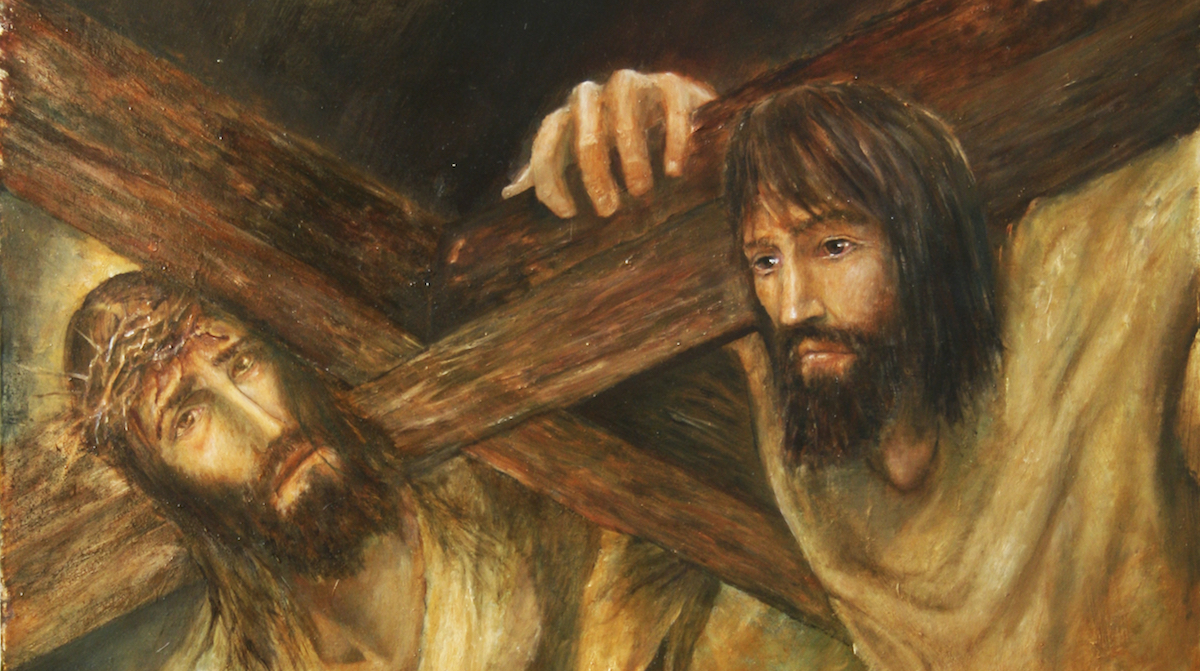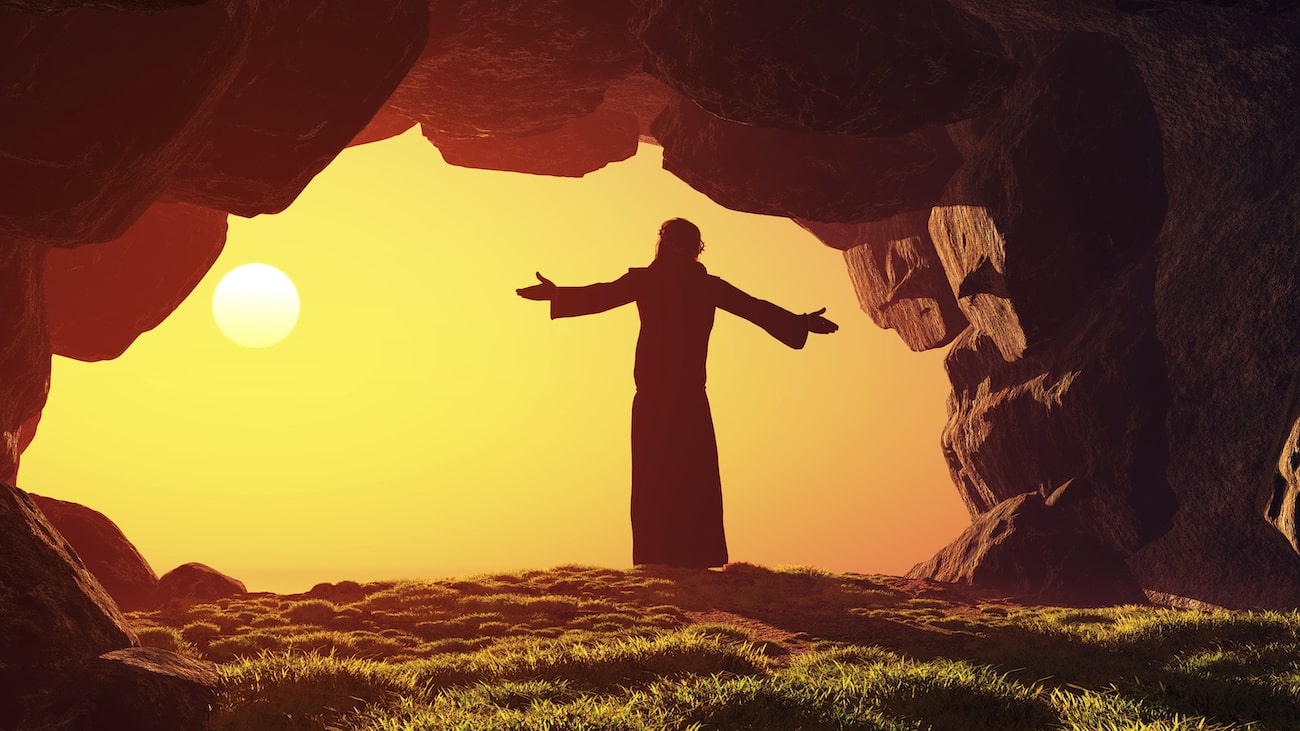The Venerable Fulton J. Sheen used to say that before every Easter there has to be a Good Friday. No Easter season has ever underscored the absolute veracity of this adage for me than the last one.
I have a very dear friend who seems to have had a month of Good Fridays in her life these past several years. This last Easter was no exception as problems with her oldest child on Holy Thursday sent her into a dark funk. I knew she was suffering a very long weekend and felt helpless to do anything for her but pray.
In the past 10 years I have eschewed participation in my parish’s Friday noon saying of the Stations of the Cross because I have found them too benign and not very reflective of Jesus’ actual suffering and death on the Cross, an event that is the most important in the salvational history of the world. As Bishop Sheen has also said, too many Christians want an Easter without its necessary Good Friday.
I knew my friend was suffering and so I decided to do what I started years ago and watch Mel’s Movie, as I call The Passion of the Christ, directed and produced by Mel Gibson. It is an extremely graphic but very realistic rendition of the torment that Jesus endured in the Garden, the Roman praetorium, the road to Calvary and Jesus’ rendezvous with his crucifixion and death. In watching the movie, I felt a deep kinship with my friend’s suffering. In the popular vernacular, I felt her pain as if it were my own.
Why would anyone do that? One of my more favorable traits is I have the loyalty of a fireside hound for my friends. So I thought this was my best way of showing some solidarity with her.
Mel’s Movie also served as a perfect meditation for getting with the Easter week spirit. Three secondary characters leapt at me with a new profound meaning I had missed all these years. I am talking about Judas Iscariot, Pontius Pilate and Simon of Cyrene.
For most people, especially Christians, Judas is a name synonymous with betrayal and abject evil. In the overall scheme of things Judas makes Benedict Arnold look like a flag-waving patriot. But Director Gibson portrays him with a much more human sense of frailty and weakness. Once he has realized the magnitude of his great sin, he is bereft and overcome with his guilt. He hurls his 30 pieces of silver at Caiphas and the other leaders of the Sanhedrin and runs from their presence. They merely shrug their shoulders, leaving him to his own inner demons, who materialize in the form of filthy-looking street urchins who hound and mentally torture him to the precipice of his self-destruction.
Over-wrought with this inner hell, he sights a rope, dangling from the rotting corpse of a pack animal and finds immediate relief from his conscience. It is my contention people who take their own lives, even Judas, should not be judged so hard by the rest of us because since suicide goes against the very grain of living, it is often just a weak-man’s way of escaping from his or her pain. These poor souls can only be fairly judged by God and certainly not us.
Pilate is a little more complex. Caught between the pressures of being a Roman Prefect and the angry protestations of the Sanhedrin, Jesus sits him squarely on the thorny horns of a dilemma from which there is no easy escape, only the cowardly exit of indifference.
Rome has warned Pilate that Jerusalem would be the last stop in his very rocky career if Jewish unrest continued much longer. And if he let the Jews get out of control, there would be serious penalties that he would have to endure. The presence of Jesus, a thorn in his Roman side, made Pilate fear another Jewish uprising. If he condemned Jesus to death on the Cross, he feared that His followers might begin a civil war among the Jews that quickly could rage out of control. If he freed him the Sanhedrin would go into a major revolt that would cost him his job and maybe even his life.
His washing of his hands, in its metaphorical meaning, has served as a prime example for apathy and as an excuse for not getting involved. No, Pilate may have been a Roman procurator but his was definitely not a profile in courage. To the contrary he appears in the Bible, more likened to a petty bureaucratic in a high stakes position where failure could mean recall, disgrace and ultimately death.
But Pilate is not alone, especially in the 21st century. In general people who do not want to get involved with the moral struggles of their times but are content to sit at home, watching their wide screen TVs and tuning out the evils around, have collectively in spirit washed their hands of the Lord, in league with Pontius Pilate. I fault Democratic politicians especially who blatantly support abortion on demand in public violation of one of the major tenets of their faith…Thou shalt not kill. The Book of Revelation uses the odious word vomit to display God’s contempt for such people.
On the issue of who is to blame, for Jesus’ death on the Cross, Pilate’s name comes up again. I once interviewed a prominent religious scholar for Phyllis Schlafly’s radio program many years ago. When he stated unequivocally that The Romans did it!!! I asked him what was Jesus’ crime? This is the politically correct but factually incorrect answer that all of the elite have been forced to accept as their truth. His silence coincided with the end of the interview. It also spoke volumes. What did he think Pilate‘s public ablutions meant? Washing of the hands amorally absented Pilate from any active role in Christ’s death! Of course the sins of all men were the providential cause of His being here but the particular actors in this morality play were the Jews, especially Caiphas and the other rabbis.
But this fact should not imply a blood libel as it is called, where all Jews were responsible. Of course that is a ridiculous lie that I was never was taught in all the years of my Catholic education. The delicious irony is that many Jewish historians blame all Christians and our civilization for the Holocaust, which is same thing. No one condemns them for their own blood libel except me of course.
Simon of Cyrene would also have liked to stay on the sidelines with Pilate but he was literally drafted into helping the visibly exhausted Jesus carry His heavy cross. Though reluctant to help Jesus, he was taken back by how hard Jesus struggled to keep moving toward Calvary.
By the time they reached the goal, Simon was, not only carrying the heavier load, but also filled with such deep compassion for the condemned Messiah that he was also defending Jesus from the scoffs and taunts of the Roman guards. Jesus’ presence had swayed his soul in the direction of eternal life. It was truly an epiphanous moment for the husky man from Cyrene. All these cinematic portraits, plus those cameos with Mary, the Mother of Jesus and Veronica along the way to Calvary, all served to make this the greatest movie ever made.









Amen, Bill….✝️